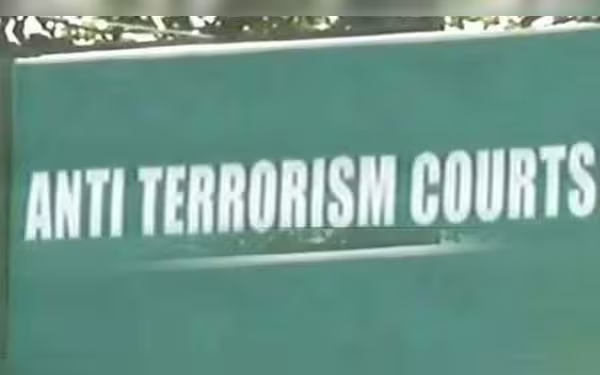Saturday, November 16, 2024 07:42 PM
Revival of Anti-Terrorism Act Sunset Clause Sparks Controversy
- Proposed amendment allows three-month detention without charges.
- Critics warn of potential abuse of civil liberties.
- Debate highlights the balance between security and human rights.
 Image Credits: tribune.com.pk
Image Credits: tribune.com.pkThe revival of the ATA sunset clause raises concerns over civil liberties and national security in Pakistan.
The Anti-Terrorism Act (ATA) of 1997 was introduced in Pakistan to combat the growing threat of terrorism. Over the years, this law has undergone various amendments to adapt to the changing security landscape. One of the most controversial aspects of the ATA is the sunset clause, which allows certain provisions to expire after a specific period unless renewed. Recently, the government proposed to revive this sunset clause, igniting a heated debate about the balance between civil rights and national security.
The proposed amendment aims to give law enforcement agencies (LEAs) the authority to detain individuals suspected of terrorism for up to three months based on "reasonable suspicion." This means that if the police believe someone might be involved in terrorist activities, they can hold that person without formal charges for a significant period. Proponents of this amendment argue that it is necessary to prevent potential attacks and ensure public safety. They believe that having the ability to detain suspects can help authorities gather crucial information and disrupt terrorist plots before they can be executed.
However, critics of the proposal raise serious concerns about civil liberties. They argue that such powers could lead to abuse and wrongful detentions, infringing on the rights of innocent individuals. The term "reasonable suspicion" is subjective and can be interpreted in various ways, which raises fears of arbitrary arrests. Many believe that this could create an environment of fear and mistrust among the public, where individuals may be detained without just cause.
The debate surrounding the revival of the sunset clause in the ATA is not just about security; it also touches on fundamental human rights. It is essential to find a balance that protects citizens from terrorism while also safeguarding their rights. The government must ensure that any measures taken do not compromise the very freedoms that it seeks to protect.
As this discussion unfolds, it is crucial for citizens to stay informed and engaged. Understanding the implications of such laws is vital for a healthy democracy. The revival of the sunset clause in the ATA is a complex issue that requires careful consideration and dialogue among all stakeholders. Ultimately, the goal should be to create a safe society without sacrificing the rights and freedoms that define it.













